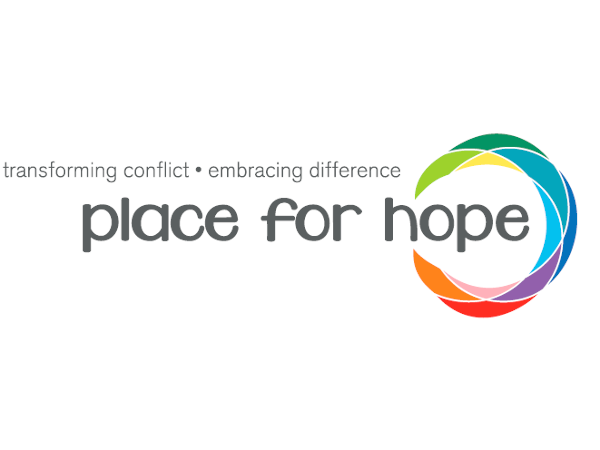Place for Hope Partnership
Differences in outlook, understanding and convictions are a normal part of church life. They can give rise to conflict and tension, and these are a normal part of church life too.
This is why, following the resolution at Assembly Executive February 2024, the five-year Living Reconciliation Partnership between Place for Hope and the URC was agreed this summer. The decision supported the need for a denomination-wide mediation and reconciliation service as the Church is dealing with an ever-increasing number of complaints rooted in conflicts which in turn affect local churches, synods and General Assembly. The arrangement, with Place for Hope, will be an arrangement that parallels those already in existence with the Methodist Connexion, the Church of Scotland & the Scottish Episcopal Church and will provide consistency across the URC. The arrangement will be led by Place for Hope in close collaboration with URC, with Jenny Mills as the key URC liaison for the Partnership and Martha Hunt as the key Place for Hope liaison.
Place for Hope is an organisation which helps faith communities to become peacemakers who navigate conflict well. They are here not only to offer mediation when needed, but also to train people in the URC to mediate and to train others. Place for Hope aims not just for conflict resolution, but for conflict transformation, with the result that we all come to live better with difference.
There are two main ways in which the Living Reconciliation partnership aims to achieve this:
Firstly…
Place for Hope will train, equip, accredit and supervise a team of mediators or practitioners so that they can provide impartial support to those experiencing times of change, disagreement and difference.
Secondly…
they will train a URC Living Reconciliation Training Team, equipping them to deliver Place for Hope foundational courses across the URC on topics related to conflict, change, challenging behaviour, and living well with differences.
Developmental Phase
The first group of new mediators will start training in early 2025 and the partnership will be launched at the 2025 General Assembly. Place for Hope are working with the URC to discern a call, train, accredit and support our first cohort of mediators. We need to take time and care over this training, to ensure that they have enough time develop their skills, and gain experience alongside experienced Place for Hope practitioners, without exceeding their capacity, so that the service we build is robust and sustainable.
Timeline

Phase One
The first phase of rolling out mediation, at the end of year one, will involve working with two synods. The synods are to be confirmed, but the selection will need to be based on Place for Hope’s availability to support new URC mediators. Place for Hope will work with these synods to establish a network of practitioners.
Wider Roll-out
The roll-out will then continue across the other 11 synods over the next five years.
During the rollout of the mediation service under the Living Reconciliation Programme, the Place for Hope Programme Team will be working closely with us to provide the foundational training to all those in the URC who wish to increase their understanding, skills and confidence in managing conflict, change and difference. Until a synod is brought into the Mediation Team service, training will increase its capacity in preparation for future roll-out.
Interim arrangements
While we are training and establishing mediators for the URC, any cases arising for mediation can be referred to Place for Hope but will incur fees. These cases will be subject to Place for Hope’s standard terms and conditions and will depend on the capacity of the Place for Hope team.
We thank you for your patience and understanding during this developmental phase of the partnership when our priority is building a robust and sustainable service within the URC.
Keeping you updated
We will keep you informed about this partnership and anticipate that it will help the URC to discover new opportunities for working together and to support churches to be places of peace, where all and live together with difference and flourish in their God-given diversity.

